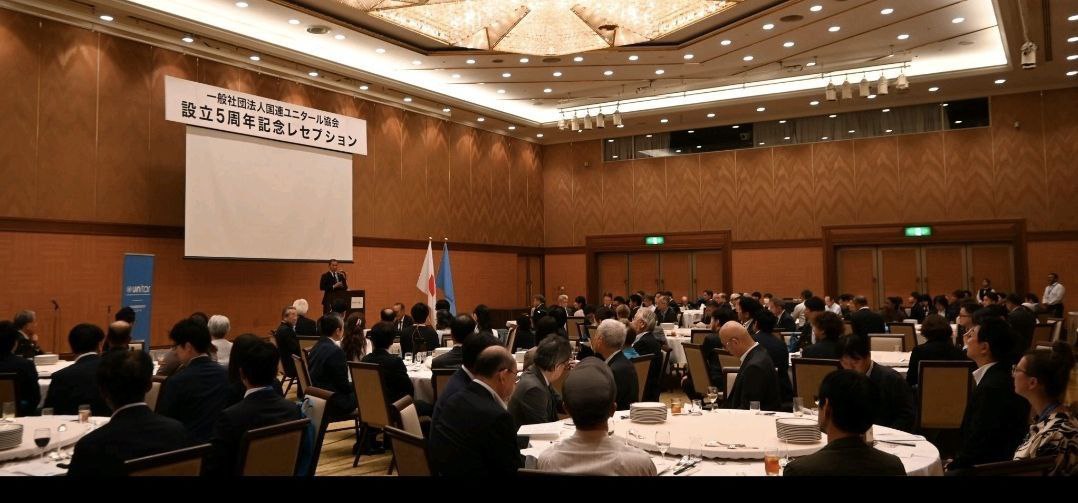Article 130 of the Code of Ukraine on Administrative Offenses (CUAO) regulates liability for driving vehicles under the influence of alcohol or drugs. Its application raises a number of legal conflicts, particularly regarding the simultaneous imposition of two primary penalties, which contradicts the principles of the rule of law and proportionality of sanctions.
Within the framework of the research conducted by the Research Institute of Maritime and Space Law (RIMSL), the legal nature of administrative penalties, their compliance with the Constitution of Ukraine and international human rights standards, as well as judicial practice and possible ways to resolve this issue, have been analyzed.
According to Part 1 of Article 130 of the CUAO, driving a vehicle under the influence is punishable by two types of administrative sanctions:
1. A fine of UAH 17,000 (1,000 non-taxable minimum incomes of citizens).
2. Deprivation of the right to drive a vehicle for one year.
According to Article 25 of the CUAO, administrative penalties are divided into primary and additional:
– A fine is considered a primary penalty;
– Deprivation of the right to drive, in the context of Part 1, Article 130 of the CUAO, is also a primary penalty, since it is mandatory, and the court has no discretion to decide whether to apply it or not.
This situation contradicts Part 2, Article 25 of the CUAO, which stipulates that only one primary penalty or a combination of a primary and an additional penalty may be imposed for a single offense. At the same time, Part 1, Article 130 of the CUAO mandates the simultaneous imposition of two primary penalties without alternative, creating a legal conflict.
Violation of the Constitution of Ukraine and the Principle of Ne Bis in Idem
According to Article 61 of the Constitution of Ukraine:
“No one may be held legally liable twice for the same offense.”
The simultaneous imposition of both a fine and deprivation of the right to drive raises concerns about its compliance with this provision, since both penalties belong to the same type of legal liability—administrative.
The Cassation Administrative Court of the Supreme Court (ruling of March 19, 2021, No. 300/195/20) clarified that the prohibition of double liability does not mean that different sanctions cannot be imposed within the same proceeding. However, in this case, the penalties imposed are both primary and belong to the same type of legal liability—administrative, which creates a legal inconsistency.Compliance with the European Convention on Human Rights (ECHR) and the Case Law of the European Court of Human Rights (ECtHR)
According to Article 4 of Protocol No. 7 to the ECHR:
“No one shall be tried or punished again in criminal proceedings under the jurisdiction of the same state for an offense for which he has already been finally acquitted or convicted.”
The European Court of Human Rights (ECtHR) recognizes the simultaneous application of two penalties as permissible only if there is a sufficient functional connection between them.
In the case of “A and B v. Norway,” the ECtHR examined the principle of ne bis in idem (Latin: “not twice for the same thing”), which prohibits double liability for the same offense. The ECtHR ruled that double proceedings do not violate the principle if they are “sufficiently closely connected in substance and time.” This means that different proceedings must pursue complementary objectives, be foreseeable to the individual, and avoid imposing an excessive burden on them. The Court emphasized that dual punishment is permissible if the sanctions serve different functions.
A fine serves a punitive function, meaning it is aimed at punishing the offender.
Deprivation of the right to drive serves a preventive function, meaning it aims to prevent future offenses.Thus, this argument supports the simultaneous application of both penalties, but only if other equally important factors are considered.
The Principle of Proportionality in ECtHR Practice
The principle of proportionality is fundamental in ECtHR case law and is used to balance state intervention and the protection of individual rights. This principle requires that any state intervention must be necessary, adequate, and not exceed what is required to achieve a legitimate aim.
Key ECtHR rulings on the principle of proportionality:
1.”Lyashko v. Ukraine” (2006): The ECtHR emphasized that courts must assess whether interference was justified, necessary in a democratic society, and proportionate to its goal.
2. “Klass and Others v. Germany” (1978): The Court stated that even when states have discretionary powers, they must provide adequate safeguards against abuse, adhering to the principle of proportionality.
3. “Rekvényi v. Hungary” (1999): The ECtHR held that restrictions on rights must be proportionate to the legitimate aim they pursue.
These decisions demonstrate that the ECtHR consistently applies the principle of proportionality when assessing state interference with human rights, ensuring a balance between public interests and individual rights. Thus, the simultaneous imposition of two primary penalties may be deemed excessive, particularly for first-time offenders. This serves as a strong argument in favor of applying only one type of penalty and individualizing punishment.
In many countries, similar offenses are punished either by a fine or by deprivation of the right to drive, but not both combined.
In Ukraine, when imposing a penalty under Part 1, Article 130 of the CUAO, the court does not have discretion to choose between a fine and deprivation of the right to drive, which essentially contradicts the principle of fair trial.
Article 130 of the CUAO requires the automatic imposition of both primary penalties in all cases, which does not comply with ECtHR standards regarding the necessity of considering each case individually.
Given the legal uncertainty regarding the simultaneous application of two primary penalties under Part 1, Article 130 of the CUAO, it is advisable to approach each case individually and justify decisions based on the principles of the rule of law, proportionality, and international practice.
When imposing an administrative penalty for driving under the influence, it is necessary not only to mechanically apply the provisions of Article 130 of the CUAO but also to assess the circumstances of the case and the balance between punitive and preventive functions of the penalty.
Justification for Imposing Both Primary Penalties (Fine + Deprivation of the Right to Drive):
A fine serves a punitive function, meaning it is aimed at punishing the offender
Deprivation of the right to drive serves a preventive function, meaning it aims to prevent repeated offenses.
The court must justify that in the specific case, the simultaneous application of both types of penalties is necessary, explaining why only one type of sanction would not achieve the purpose of liability.
Justification for Imposing Only One Type of Penalty (Either a Fine or Deprivation of the Right to Drive):
A fine alone may be justified if the offender, for example, needs to continue driving (due to work-related or life circumstances), and their financial situation allows them to pay a significant fine.
Deprivation of the right to drive alone may be justified if this sanction is sufficient to prevent similar offenses in the future, and a fine is not appropriate, for instance, due to the offender’s financial situation.
Since Part 2, Article 25 of the CUAO allows for either one primary penalty or a combination of a primary and additional penalty, one can argue that the simultaneous imposition of two primary sanctions contradicts this provision, constitutional norms, and the principle of ne bis in idem (Latin: “not twice for the same offense”).
It is logical to refer to Article 61 of the Constitution of Ukraine, which prohibits double legal liability of the same type for the same offense, interpreting this provision as a prohibition on imposing two primary administrative sanctions simultaneously.
If the court decides to apply only one type of penalty, it can argue that the fine and deprivation of rights are not interdependent measures of liability in this particular case, since the fine is a punitive measure, while deprivation of rights is a preventive measure, and their simultaneous application in this situation is not proportionate. The court must specify the circumstances of the case that justify this conclusion.
According to Article 6 of the European Convention on Human Rights (ECHR), courts are obliged to ensure a fair trial, which includes the possibility of individualizing punishment. The court may justify its decision by stating that the simultaneous application of both primary sanctions is excessive for the specific offender.
Conclusion – Recommended Approach: Individualized Decision-Making in Each Case
When imposing both penalties, the court must clearly justify why both punitive and preventive measures are necessary in the specific case, considering individual circumstances.
When imposing only one type of penalty, the court should justify its position based on legal conflict, constitutional norms, ECtHR case law, and the principle of proportionality.
By following this approach, judicial practice will be grounded in legal principles, international standards, and constitutional guarantees, ensuring fairness in administrative proceedings. Individual case circumstances must always be taken into account.
When imposing only one type of penalty, the court should justify its position based on the legal conflict, the norms of the Constitution of Ukraine, ECtHR case law, and the principle of proportionality. Judicial practice must be based on legal principles, international standards, and constitutional guarantees, ensuring fairness in administrative proceedings. It is essential to consider the individual circumstances of each case.
It should be noted that the final resolution of this issue should be addressed by the legislator, either by choosing one type of punishment (e.g., only deprivation of the right to drive) or by granting courts discretion in imposing deprivation of the right to drive as a penalty (in this case, it would become an additional penalty, thereby resolving the legal conflict).
At the same time, it should be emphasized that there are no grounds to consider the imposition of both penalties or only one of the penalties prescribed by Part 1, Article 130 of the CUAO as a violation of the law or a basis for holding a judge liable, provided that the decision is properly justified based on the circumstances of each specific case.
The internal conviction of a judge is one of the fundamental principles of the judicial process, ensuring objectivity, fairness, and legality of judicial decisions. This concept reflects the independence of the judge in the process of evaluating evidence and rendering decisions based on their understanding of legal norms and the factual circumstances of the case.
Director of the Research Institute of Maritime and Space Law, Doctor of Law, Professor, Retired Judge, Expert
Andriy Ivanyshchuk










